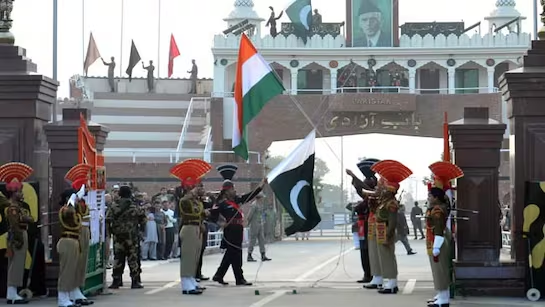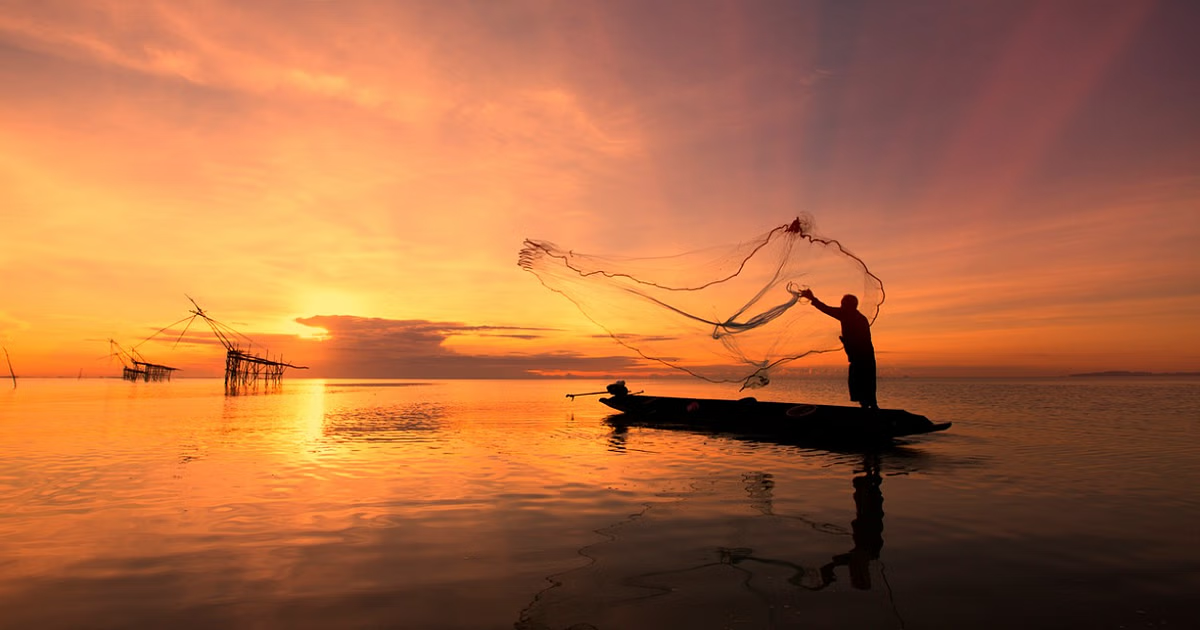A group of 22 Indian fishermen, who had been detained in Pakistan’s Karachi jail for unintentionally crossing into the country’s territorial waters, were released and repatriated to India on Saturday.
The fishermen were handed over to Indian authorities at the Wagah Border near Lahore, marking another instance of the ongoing issue of maritime boundary disputes leading to the arrest of fishermen from both nations.
The Release and Repatriation Process
The released fishermen were transported from Karachi to Lahore in a special bus arranged by the Edhi Foundation, a well-known humanitarian organization in Pakistan.
Upon their arrival in Lahore, they were provided with meals, gifts, and a financial grant of PKR 5,000 each by the Edhi Foundation before being officially transferred to Indian authorities at the Wagah Border.
These fishermen, identified as Bhupat, Mala, Krishan, Khalaf, Mohan, Asif, Ashok, Akbar, Lakhman, Moji, Deepak, Ram, Hari, Tapu, Suresh, Vijay, Manoj Kumar, Vinu, Mahesh, Subhash, Sanjay, and Selendhar, had completed their prison sentences and were awaiting repatriation.
Malir Jail Superintendent Arshad Shah confirmed that all the fishermen had served their sentences and were released as per legal procedures. Fishermen from India and Pakistan are often arrested due to the poorly demarcated maritime boundary between the two countries, particularly in the Arabian Sea.
Read : 13-Year-Old Maid Killed For Stealing Chocolates in Pakistan
The sea border remains contentious, leading to frequent accidental crossings by fishermen who rely on fishing as their primary livelihood. Both governments regularly detain fishermen from the other side, and repatriation efforts are often subject to diplomatic negotiations and bureaucratic processes.
The Broader Issue of Fishermen Detentions
According to the latest exchange of prisoner lists between India and Pakistan on January 1, 2025, Pakistan held 266 Indian prisoners, including 49 civilian prisoners and 217 fishermen.
Conversely, India held 462 Pakistani prisoners, comprising 381 civilian prisoners and 81 fishermen. These figures highlight the persistent issue of fishermen arrests due to the unclear maritime boundaries between the two nations.
Read : Fisherman in Greenland Caught a Bizarre Fish with Three Eyes
A response from the Indian Ministry of External Affairs (MEA) in the Lok Sabha on December 12, 2024, revealed that 2,639 Indian fishermen have been repatriated from Pakistan since 2014.

As of July 1, 2024, a total of 209 Indian fishermen remained in Pakistani custody, including 51 who had been imprisoned since 2021, 130 since 2022, 9 since 2023, and 19 since 2024. The prolonged incarceration of these fishermen has caused significant hardship for their families, who often struggle to secure their release through diplomatic channels.
Faisal Edhi, the head of the Edhi Foundation, has been vocal in urging both India and Pakistan to adopt a more humane approach when dealing with fishermen who inadvertently cross maritime boundaries.
He emphasized the suffering of the families of these detained fishermen and called for a more expedited process for their release and repatriation once they have served their sentences.
The Diplomatic Process and Future Prospects
The repatriation process of detained fishermen between India and Pakistan follows a formal protocol. Pakistani authorities typically hand over Indian fishermen at the Wagah Border, after which Indian officials facilitate their return to their respective coastal villages.
Similarly, Indian authorities release Pakistani fishermen at the Wagah Border, and the Pakistani government arranges for their travel back to their hometowns.
Despite these established procedures, delays in repatriation are common due to the bureaucratic and diplomatic hurdles involved. Fishermen often languish in prisons even after completing their sentences due to the slow-paced coordination between the two governments.

Human rights organizations and activists have repeatedly called for a more structured and efficient mechanism to address this issue, ensuring that fishermen are promptly returned to their countries upon completing their sentences.
There have been ongoing diplomatic discussions between India and Pakistan regarding the early release of detained fishermen, with both sides occasionally agreeing to goodwill gestures by releasing a certain number of prisoners.
However, the core issue remains unresolved, as fishermen from both nations continue to be arrested due to the ambiguous maritime boundary.
The release of the 22 Indian fishermen from Karachi jail marks another chapter in the long-standing issue of maritime arrests, highlighting the need for a more compassionate and structured approach to dealing with such cases.
While organizations like the Edhi Foundation continue to provide humanitarian assistance, a lasting solution can only be achieved through diplomatic efforts and clearer demarcation of territorial waters to prevent accidental crossings.

